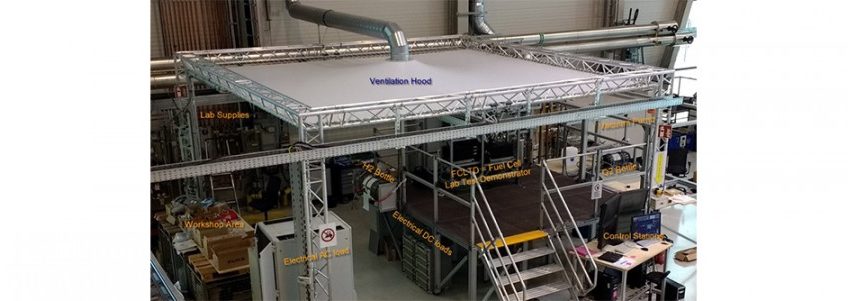Creating the basis and acceptance for the use of hydrogen and the operation of fuel cells on board an aircraft and at the airport is the goal of the research project Fuel Cell Integration in the Laboratory and Operation Optimisation (BILBO – Brennstoffzellen-Integration im Labor und Betriebs-Optimierung) for which Airbus Operations GmbH, AOA Apparatebau Gauting GmbH, Deutsches Zentrum für Luft und Raumfahrt e.V. and the Zentrum für angewandte Luftfahrtforschung GmbH have joined forces.
The consortium intends to develop the fuel cell and associated subsystems, such as an environmentally friendly fire extinguishing system, into a commercial application. Innovative ideas on functional models are to bring new impulses to aviation. The BILBO project is supported by the National Innovation Programme Hydrogen and Fuel Cell Technology (NIP) with funds totalling more than 3 million euros.
The first project results confirm that harsh environmental conditions do not necessarily lead to any restrictions in the operation of a fuel cell system in passenger aircraft, but that there are functioning technical solutions, which in some cases do not result in any loss to performance. This shows that the deployment of hydrogen and fuel cells in aviation remains an interesting option for reducing emissions and increasing efficiency. Although there are no short-term market activation effects due to the very long development times, the discussion about the technology increases its general perception, resulting in other companies turning to the technology and thus expanding the basis for development and market participation. The BILBO research project will run until the end of September 2019.


